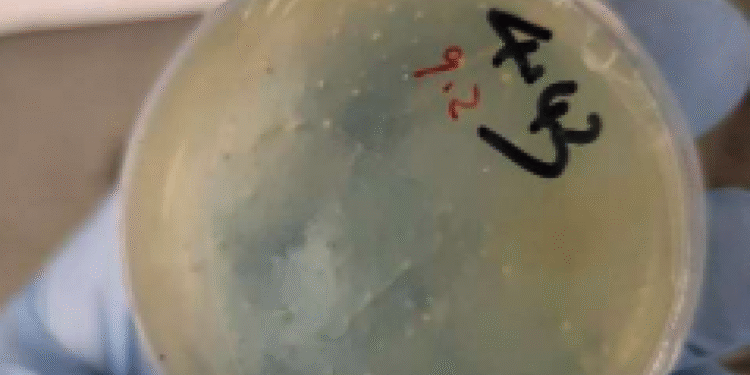Chengxuan Han now faces charges of smuggling and making false statements, according to a criminal complaint filed in U.S. District Court in Detroit. She’s the third Chinese citizen in one week accused of bringing biological materials into the U.S. for research at a University of Michigan lab.
This latest case involves Han allegedly smuggling biological materials related to roundworms into the country for use in a U-M laboratory. She appeared in federal court on June 9 and was temporarily detained. A detention hearing is scheduled for June 11. Her attorney, Rhonda Brazile, declined to comment.
Related posts
According to an affidavit, Han is a doctoral student at the College of Life Science and Technology at Huazhong University of Science and Technology in Wuhan, China.
Between September 2024 and March, she was listed as the sender of four shipments containing concealed or incorrectly labeled biological materials. These were addressed to two individuals connected to a University of Michigan lab.
While the affidavit doesn’t identify the lab or the recipients, it describes the lab’s focus on sensory biology—studying processes like mechanosensation, thermosensation, chemosensation, photosensation, and nociception, as well as sensory processing and its effects on aging.
The affidavit also noted that U-M invited Han to serve as a visiting scholar. One package recipient is an active lab member, and the other is listed as faculty or staff at the Life Sciences Institute.
The materials Han sent lacked proper documentation and weren’t imported under U.S. Department of Agriculture or U.S. Customs and Border Protection rules.
She arrived at Detroit Metro Airport from Shanghai on June 8 using a J-1 visa. Customs officers inspected her belongings and interviewed her. At first, she denied sending the packages but later admitted to doing so, acknowledging they contained materials from her Chinese lab.
Initially, she claimed the shipments contained plastic cups and a book, omitting mention of the biological contents. Upon further questioning, she revealed they contained nematode growth medium (NGM) and plasmids. However, the affidavit stated that the dishes likely held more than just NGM, which is both inexpensive and widely available in the U.S.
Authorities also discovered that Han deleted her device data three days before arriving, which she explained was an effort to “start fresh” in the U.S.
After her customs inspection, FBI and Homeland Security agents interviewed her again. Han admitted to sending four shipments containing C. elegans (nematode worms) and plasmids from her Chinese research lab. She also confessed to lying to customs officers.
One package sent in September was falsely labeled as a letter but was found to contain plasmids. Another September shipment labeled as plastic plates contained eight petri dishes with biological samples. An October shipment also revealed plasmids. A fourth package sent in March was marked as a letter but concealed an envelope with a handwritten chart inside a book, listing 28 shapes and a labeling scheme consistent with C. elegans research.
Han estimated she had sent five to ten packages to the U.S., with Chinese couriers informing her that some were lost in transit. After customs intercepted the fourth shipment, one of the recipients contacted her to inform her U.S. customs had questioned its contents.
U.S. Attorney Jerome Gorgon Jr. for the Eastern District of Michigan stated that this incident reflects a troubling trend that puts national security at risk, adding that American taxpayers should not be supporting a smuggling operation tied to China at a public institution.
John Nowak, acting director of field operations for U.S. Customs and Border Protection, emphasized that the U.S. has strict, clearly defined rules for importing biological materials for research and that violations like this undermine the work of legitimate scholars.
According to the affidavit, Han’s research focuses on how animals detect sensory cues—such as touch, chemicals, light, and temperature—and how their nervous systems process these signals to drive behavior. She has co-authored two papers involving C. elegans and named a U-M professor as her adviser.
Han had planned to return to China to defend her dissertation between June and September 2026.
In a separate case, authorities last week charged Yunqing Jian, 33, and her boyfriend, Zunyong Liu, 34, with conspiracy, smuggling, false statements, and visa fraud. They allegedly brought a dangerous crop fungus into the U.S. so Liu could study it at the University of Michigan, where Jian works.
Jian is currently being held pending a June 13 detention hearing. Liu allegedly tried to bring the fungus into the country on July 27 in plastic baggies in his backpack. Customs denied him entry and deported him.
Prosecutors said the fungus, Fusarium graminearum, is considered a potential agroterrorism weapon. It causes head blight in crops like wheat, rice, and maize, leading to massive agricultural losses. Its toxins can harm both livestock and humans.
In another unrelated case, Haoxiang Gao, a former U-M student from China, was charged with voting illegally in the 2024 presidential election before fleeing the country just one day before President Donald Trump’s inauguration.







